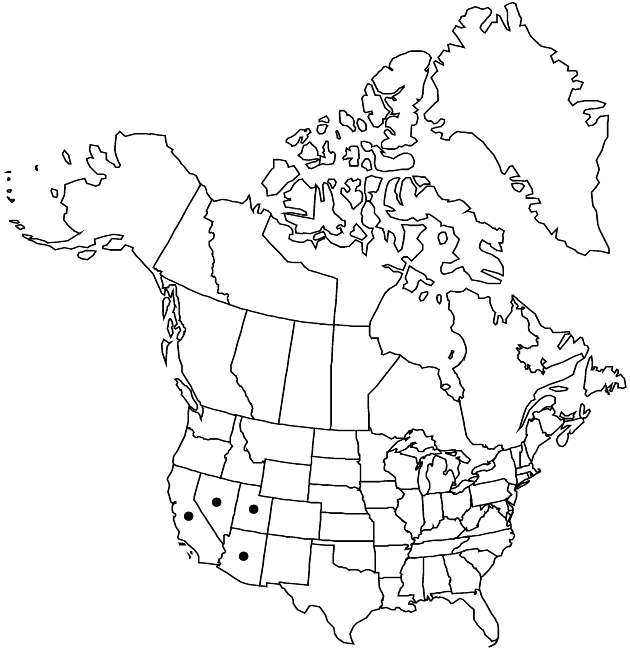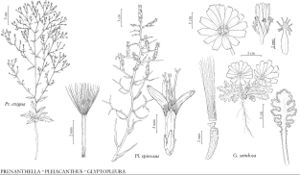Difference between revisions of "Glyptopleura setulosa"
Proc. Amer. Acad. Arts 9: 211. 1874.
Common names: Keyesia holly-dandelion
IllustratedEndemic
Synonyms: Glyptopleura marginata var. setulosa (A. Gray) Jepson
Treatment appears in FNA Volume 19. Treatment on page 362.
FNA>Volume Importer |
imported>Volume Importer |
||
| (2 intermediate revisions by 2 users not shown) | |||
| Line 8: | Line 8: | ||
}} | }} | ||
|common_names=Keyesia;holly-dandelion | |common_names=Keyesia;holly-dandelion | ||
| + | |special_status={{Treatment/ID/Special_status | ||
| + | |code=F | ||
| + | |label=Illustrated | ||
| + | }}{{Treatment/ID/Special_status | ||
| + | |code=E | ||
| + | |label=Endemic | ||
| + | }} | ||
|basionyms= | |basionyms= | ||
|synonyms={{Treatment/ID/Synonym | |synonyms={{Treatment/ID/Synonym | ||
| Line 50: | Line 57: | ||
|publication title=Proc. Amer. Acad. Arts | |publication title=Proc. Amer. Acad. Arts | ||
|publication year=1874 | |publication year=1874 | ||
| − | |special status= | + | |special status=Illustrated;Endemic |
| − | |source xml=https:// | + | |source xml=https://bitbucket.org/aafc-mbb/fna-data-curation/src/2e0870ddd59836b60bcf96646a41e87ea5a5943a/coarse_grained_fna_xml/V19-20-21/V19_576.xml |
|tribe=Asteraceae tribe Cichorieae | |tribe=Asteraceae tribe Cichorieae | ||
|genus=Glyptopleura | |genus=Glyptopleura | ||
Latest revision as of 19:53, 5 November 2020
Plants 2–6 cm. Leaves 1–6 cm, margins narrowly white-crustose. Heads 3–4 cm diam. (often appearing disproportionately large for size of plants). Calyculi: margins of outer bractlets crustose-toothed mostly near apices. Involucres 10–15 mm. Florets 7–14; corollas cream to pale yellow, aging pink or purple, ligules 15–25 mm, exserted 10–20 mm beyond involucres.
Phenology: Flowering Mar–May.
Habitat: Sandy desert flats, rocky soil, arid grasslands, often with Larrea
Elevation: 1000–1400 m
Distribution

Ariz., Calif., Nev., Utah.
Discussion
Glyptopleura setulosa is found in the Mojave desert. Some authors (e.g., P. A. Munz 1974; G. L. Stebbins 1993b) have included G. setulosa within G. marginata. The taxa appear to be readily distinguishable and worthy of recognition as distinct species.
Selected References
None.
Lower Taxa
None.
